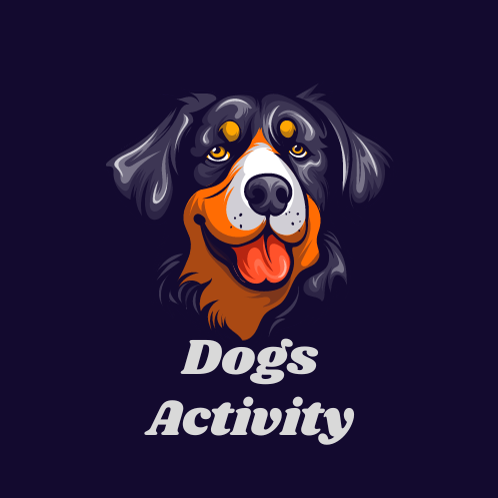
Dogs are known for their love of food, and as pet owners, it’s our responsibility to ensure they have a balanced and healthy diet. However, there’s often confusion about what human foods are safe for dogs to consume. One such question that often arises is, “Can dogs eat chicken nuggets?” While chicken nuggets may seem like a tasty treat for your furry friend, it’s essential to understand the potential risks and benefits associated with feeding them to your canine companion. In this article, we will explore the world of canine nutrition, the ingredients in chicken nuggets, and whether it’s safe to share this popular fast-food item with your dog.
Section 1: Understanding Canine Nutrition
Before we delve into the safety of feeding chicken nuggets to dogs, it’s crucial to have a basic understanding of canine nutrition. Dogs, like humans, require a balanced diet to maintain their health and well-being. A proper dog’s diet consists of proteins, fats, carbohydrates, vitamins, and minerals. While dogs are omnivores, their dietary needs are different from ours.
1.1 Protein
Protein is an essential component of a dog’s diet. It plays a vital role in muscle development, tissue repair, and overall growth. High-quality protein sources for dogs include lean meats like chicken, turkey, and beef, as well as fish and eggs.
1.2 Fats
Fats are a concentrated source of energy and are necessary for various bodily functions, including the absorption of fat-soluble vitamins. Healthy fats can be found in animal fats and certain oils like fish oil, flaxseed oil, and coconut oil.
1.3 Carbohydrates
While dogs don’t need as many carbohydrates as humans do, they can still benefit from a moderate amount of carbohydrates in their diet. Carbohydrates provide a source of energy and can be found in ingredients like rice, sweet potatoes, and vegetables.
1.4 Vitamins and Minerals
Vitamins and minerals are essential for maintaining a dog’s overall health. These include vitamin A, vitamin D, vitamin E, calcium, and phosphorus, among others.
1.5 Hydration
Proper hydration is essential for a dog’s well-being. Fresh and clean water should always be available for your furry friend.
Section 2: What Are Chicken Nuggets?
Chicken nuggets are a popular fast food item enjoyed by people of all ages. These small, bite-sized pieces of breaded and deep-fried chicken are often served with various dipping sauces, making them a convenient and tasty snack or meal. However, the ingredients in chicken nuggets may raise concerns when it comes to sharing them with your dog.
2.1 Typical Ingredients in Chicken Nuggets
The ingredients in chicken nuggets can vary depending on the brand and preparation method, but they generally include:
- Chicken meat (often mechanically separated or ground)
- Breading (usually made from wheat flour and various seasonings)
- Vegetable oil (for frying)
- Preservatives and additives
While these ingredients are generally safe for human consumption, they may not be suitable for dogs, primarily due to the breading and frying process.
Section 3: The Risks of Feeding Chicken Nuggets to Dogs
3.1 High Fat Content
Chicken nuggets are typically deep-fried, which means they have a high fat content. While fat is an essential part of a dog’s diet, excessive consumption of high-fat foods can lead to obesity and other health problems in dogs. Obesity can result in various health issues, including joint problems, heart disease, and diabetes.
3.2 Breading and Seasonings
The breading used in chicken nuggets often contains ingredients like wheat flour and seasonings. These ingredients may not agree with your dog’s digestive system. Wheat, in particular, is a common allergen for dogs and can lead to gastrointestinal issues such as vomiting, diarrhea, and skin problems. The seasonings used in nuggets, which can include salt, garlic, and onion powder, may also be harmful to dogs in large quantities.
3.3 Additives and Preservatives
Chicken nuggets may contain additives and preservatives to enhance flavor and extend shelf life. These additives are not inherently toxic to dogs, but some individuals may be more sensitive to them. If your dog has a sensitive stomach or allergies, these additives could potentially cause digestive problems or allergic reactions.
3.4 Risk of Pancreatitis
High-fat foods like chicken nuggets can increase the risk of pancreatitis in dogs. Pancreatitis is a painful and potentially life-threatening condition that results from inflammation of the pancreas. The symptoms of pancreatitis in dogs include vomiting, diarrhea, abdominal pain, and a decreased appetite. Feeding your dog high-fat foods like chicken nuggets can exacerbate this risk.
Section 4: Can Dogs Eat Chicken Nuggets in Moderation?
While the risks associated with feeding chicken nuggets to dogs are concerning, some dog owners may wonder if an occasional treat is acceptable. The key to safely sharing any human food with your dog is moderation and making informed choices.
4.1 Moderation is Key
If you’re considering sharing a small piece of chicken nugget with your dog, it’s crucial to exercise caution and control portion size. A tiny amount as an occasional treat is less likely to cause harm than a larger portion. However, it’s important to keep in mind that there are healthier and safer treat options for your dog.
4.2 Healthier Alternatives
There are plenty of dog-friendly treats available on the market that are specifically designed to meet your pet’s nutritional needs. These treats are formulated to be both tasty and beneficial for your dog’s health. Opting for these alternatives is a much safer choice than sharing human food like chicken nuggets.
4.3 Potential Health Benefits
Chicken is a good source of lean protein for dogs, and it can be included in their diet in a healthier way. Boiled or grilled plain chicken without breading or seasoning is a safer option for dogs. It can be a delicious and nutritious addition to their regular meals, provided it is served in moderation.
4.4 Consult with a Veterinarian
It’s always a good idea to consult with your veterinarian before introducing any new food into your dog’s diet, especially if your pet has allergies, sensitivities, or underlying health conditions. Your veterinarian can provide guidance on the best diet for your specific dog’s needs.
Section 5: Signs of Food Poisoning or Allergic Reactions in Dogs
If you’ve accidentally fed your dog chicken nuggets or any other human food, it’s essential to be aware of the signs of food poisoning or allergic reactions. These symptoms can vary depending on the individual dog, but common signs include:
- Vomiting
- Diarrhea
- Lethargy
- Abdominal pain
- Loss of appetite
- Skin rashes or itching
- Swelling of the face, lips, or tongue
- Difficulty breathing
If you notice any of these symptoms after feeding your dog human food, it’s crucial to contact your veterinarian immediately. Prompt medical attention can make a significant difference in your dog’s recovery.
Section 6: Safe and Healthy Treat Alternatives
When it comes to treating your dog, there are many safe and healthy alternatives to chicken nuggets that your furry friend will love. These options not only provide a tasty reward but also offer nutritional benefits without the potential risks associated with fast food.
6.1 Commercial Dog Treats
Commercial dog treats are specifically formulated for canine consumption. They come in various flavors, shapes, and sizes, making it easy to find a treat that suits your dog’s taste preferences. Look for treats that are low in fat and free from harmful additives or preservatives.
6.2 Fruits and Vegetables
Many dogs enjoy fruits and vegetables as treats. Some dog-safe options include apple slices, carrot sticks, and blueberries. These treats are low in calories and provide essential vitamins and minerals that can benefit your dog’s health.
6.3 Lean Meat
Lean meats like boiled or grilled chicken, turkey, or beef can be excellent treats for your dog. Ensure that the meat is plain, without added seasonings or spices, and serve it in small, bite-sized pieces.
6.4 Dental Chews
Dental chews are not only a tasty treat but also beneficial for your dog’s dental health. They help reduce plaque and tartar buildup, promoting healthy teeth and gums.
6.5 Homemade Dog Treats
If you enjoy baking, you can make homemade dog treats using dog-friendly ingredients. There are numerous recipes available online, allowing you to control the ingredients and cater to your dog’s specific dietary needs.
Section 7: Conclusion
In conclusion, while the idea of sharing your favorite fast-food chicken nuggets with your dog may be tempting, it’s essential to consider the potential risks associated with this indulgence. The high-fat content, breading, and seasonings in chicken nuggets can pose health risks for your canine companion, including obesity, digestive issues, and allergic reactions. Moderation and informed choices are key if you choose to share human food with your dog.
Instead of relying on potentially risky treats like chicken nuggets, it’s advisable to opt for healthier alternatives specifically designed for canine consumption. Commercial dog treats, fruits, vegetables, lean meats, dental chews, and homemade dog treats can all provide your dog with delicious and safe rewards. Always consult with your veterinarian for guidance on your dog’s specific dietary needs and any potential food sensitivities.
Remember that your dog’s health and well-being depend on you as a responsible and caring pet owner. Providing a balanced and nutritious diet is one of the most important ways you can ensure a long and happy life for your furry friend.



